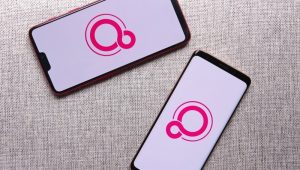Android is now the operating system that dominates smartphone users around the world. But what is Fuchsia and what are the possibilities that Google considers replacing Android with Fuchsia?
Google has been deploying a small group of engineers for more than two years to work on the software, which it hopes will replace Android. But as the team grew, they had to overcome a fairly heated internal debate about how the software would work.
See also: Google Releases Android 12 Go Edition for entry-level smartphones
Fuchsia was originally designed to overcome the limitations of Android as more and more personal devices and other gadgets are connected to the internet. Fuchsia is designed to better accommodate voice interaction and fairly regular security updates. This OS will also have the same performance across devices from laptops to small sensors connected to the internet.
Google CEO Sundar Pichai has indeed set the company towards an artificial intelligence service capable of reaching consumers everywhere. However, the main operating system, namely Android, only relies on a number of hardware partners which are considered to be unable to last long.
Fuchsia itself began to be revealed since 2016 where Google posted the code secretly. The tech giant then allowed app developers to tinker with the open source code bits. Google is also beginning to experiment with applications for the system such as interactive screen displays and voice commands for YouTube.
But based on a Bloomberg report, the Fuchsia team members have big plans, namely to create a single operating system capable of running all of the company’s internal gadgets such as Pixel phones and Google Home smart speakers, as well as third-party devices that currently rely on Android or Chrome OS.
See also: Chrome OS Becomes the Fastest Growing Operating System
According to sources quoted by Bloomberg, one of the technicians said that they would like to apply Fuchsia to connected home devices such as smart speakers within three years and then move on to other, larger devices such as laptops. In the end, the Fuchsia team wanted to replace their system with Android, as the source said. The goal is to have their wish come true in the next half decade.
On the other hand, Pichai and Hiroshi Lockheimer, the executives who run Android and Chrome, have yet to sign a roadmap for Fuchsia. The reason they have to be careful in any plan to overhaul Android, considering this OS has supported many devices, thousands of developers to billions of dollars in mobile advertising.
Publicly, Google cites Fuchsia as an example of a freewheeling approach to creative products. “Google views this open-source experiment as an investment in innovation,” a company spokesperson said in an email. In 2015, Lockheimer said in a blog post that the company had no plans to replace its Chrome operating system with Android, a statement that also applies today.
But Fuchsia is more than a basic effort. Pichai has even voiced his support internally. Fuchsia is now known to have more than 100 people working including software staff Matias Duarte, a design executive who leads several start-up projects at Google and other companies.
Fuchsia is also designed to rival Apple’s iPhone. As is well known, Apple’s operating system has a strong foothold in areas such as performance, privacy and security as well as integration across Apple devices. Another major advantage is that the majority of iPhone users quickly update their OS when a new version is launched by Apple. While the same thing is only done by less than 10 percent of Android users. This means that Google’s newest services only reach a small percentage of users.
Currently, Android that is being developed is also not built to handle the types of voice-enabled applications, as Google sees it as the future of computing. Therefore Fuchsia was developed with voice interaction. The design is also more flexible because it adapts to various screen sizes so that it can be applied to televisions, cars, refrigerators or wherever Google deploys its software.
Another advantage of Fuchsia is that it offers a technical challenge for open-source hackers. In this project, Google placed several senior personnel to maintain the security of its new operating system. This was reported by Bloomberg.
